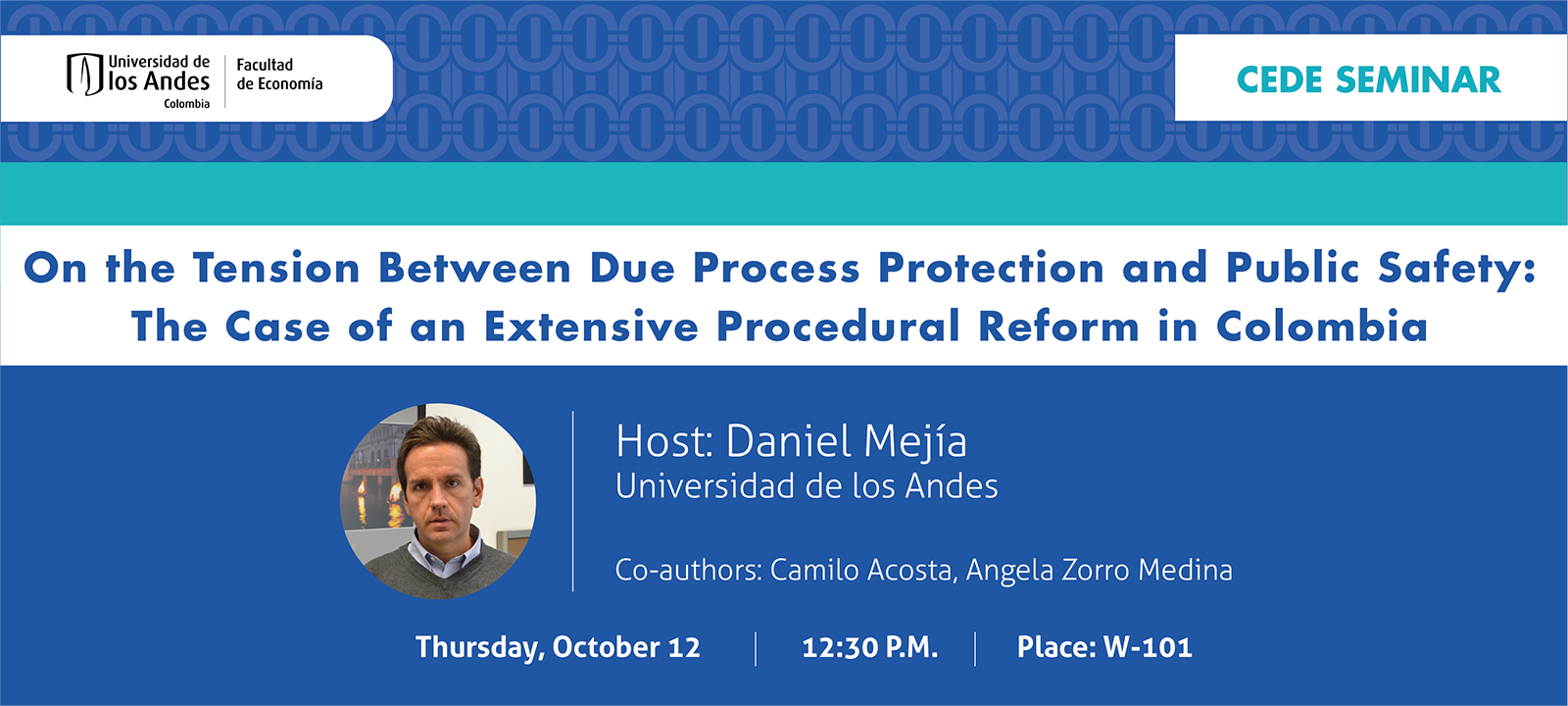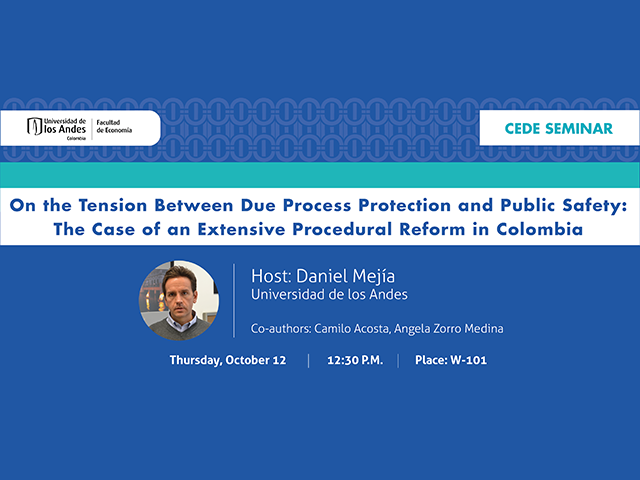CEDE Seminar - Daniel Mejía

In this paper we exploit the arguably exogenous staggered implementation of an extensive criminal procedural reform in Colombia between 2005 and 2008 to assess its intended and unintended consequences. The reform had explicit objectives, such as guaranteeing due process protection of the accused, reducing the use of pretrial detention, making the processing of criminal cases more efficient, reducing procedural times, and improving the mechanisms for early termination of criminal processes. Our results show that the reform achieved most of its goals. Namely, a significant reduction in the use of pretrial detention of about 17%-34%; a large and significant reduction in procedural times (18%); an increase in the use of mechanisms for early termination of the criminal process through settlements (43%-66%); and a large and significant increase in the percentage of cases that reach adjudication. Nevertheless, the reform also had negative unintended consequences on arrest, clearance, and crime rates. Our results indicate that arrest rates decreased by about 33% and clearance rates by 16%-27%. The reform also directly affected the incentives for criminal behavior and led to an increase in both property crimes (19%) and violent crimes (17%) as a result of the implementation of the reform. Our paper shows that well-intended reforms aimed at increasing due process protection can create unintended consequences in the administration of justice that led to increases in crime and raises the question of how to balance constitutional protections with public safety by creating special provisions and guidelines directed to mitigate potential adverse effects on crime rates.

